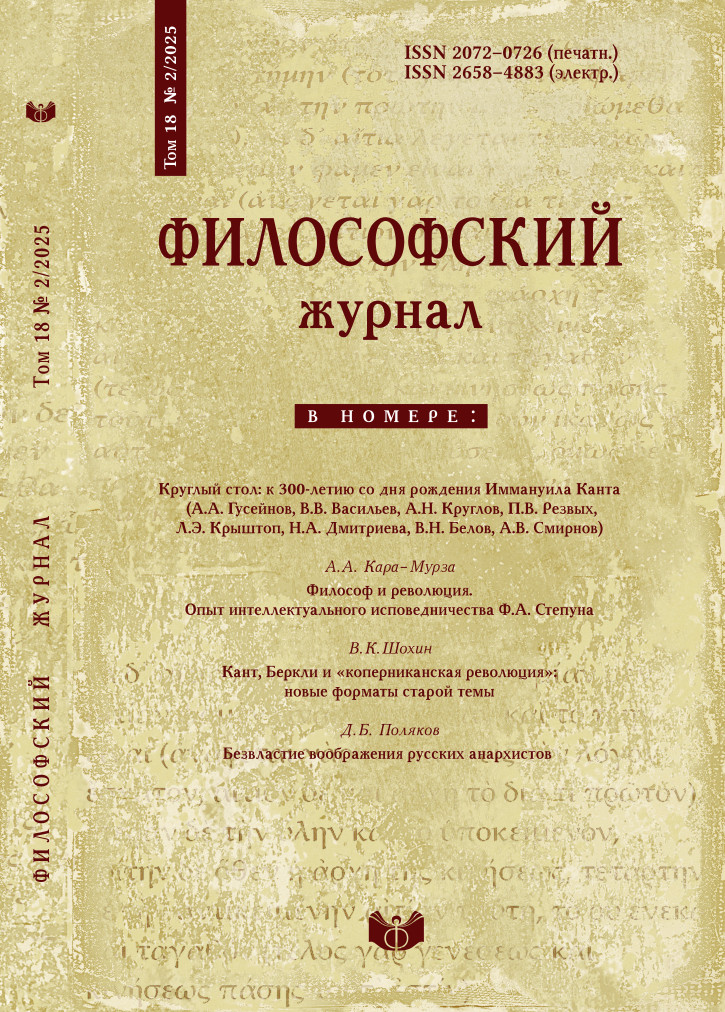The powerlessness of Russian anarchists’ imagination
Book review: N. Gerasimov, Killing the State Within. How Rebels, Philosophers, and Dreamers Invented Russian Anarchism. Moscow: Individuum, 2024. 352 pp.
DOI:
https://doi.org/10.21146/2072-0726-2025-18-2-178-183Keywords:
Russian anarchism, state, power, philosophical anarchism, utopiaAbstract
The proposed review discusses the N. Gerasimov’s book “Killing the State Within. How Rebels, Philosophers, and Dreamers Invented Russian Anarchism,” published in December 2024. The book introduces the reader in an engaging manner to both famous figures of Russian anarchism at the turn of the 19th and 20th centuries, as well as little-known personalities of this trend of radical social thought. Without being a scientific monograph, this book nevertheless reveals the contents of a set of philosophical concepts and trends associated not only with anarchism as such, but also with the aforementioned era as a whole. In the context of Russian history and culture, often constructed by the state, the ideas and practices of anarchists appear as the other side or the reverse of Russian statehood. At the same time, the political side of Russian anarchism serves in the book rather as a background against which the author seeks to highlight precisely the philosophical foundations of the theory of anarchy and statelessness. From the point of view of the author of the review, the emphasis on philosophy problematizes the distance between the two anarchisms, political and philosophical, which in the case of individual thinkers and their concepts form a conflicting tension between themselves. The reviewer considers one of the merits of the book to be the potential development of the theme of the relationship between the philosophical ideas of Russian anarchists of the specified period and a series of trends in modern philosophy – a relationship that is only indicated dotted in the book. In addition, N. Gerasimov’s book indirectly raises the question of utopian imagination and its role in the formation of critical thinking.






